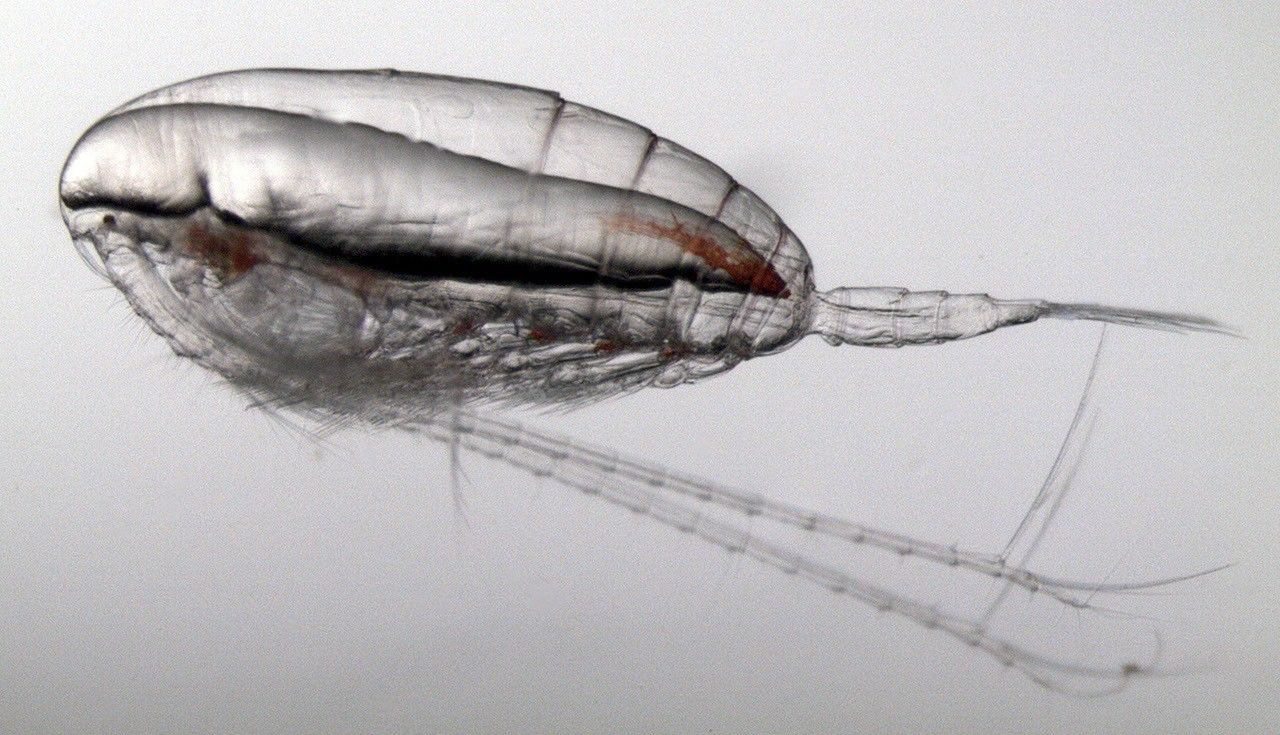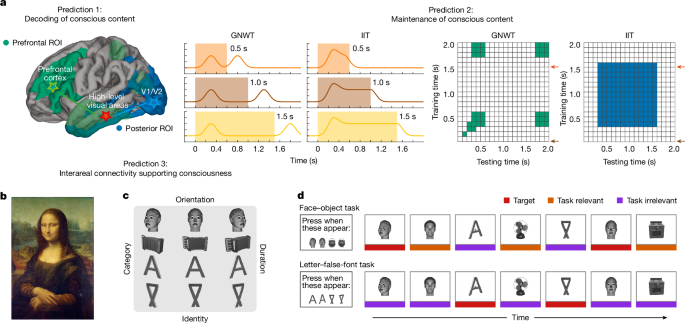NSF director quits as grants are terminated and agency budget slashed drastically
I’m a bit late to the party, but this news is not widely known. I don’t remember seeing it in the MSM, but here are two article about it in Science (first) and then Nature (second). Click each to read. The National Scienc Foundation (NSF) is an important organization for funding non-medical science, and, as … Continue reading NSF director quits as grants are terminated and agency budget slashed drastically

I’m a bit late to the party, but this news is not widely known. I don’t remember seeing it in the MSM, but here are two article about it in Science (first) and then Nature (second). Click each to read.
The National Scienc Foundation (NSF) is an important organization for funding non-medical science, and, as Wikipedia notes:
With an annual budget of about $9.9 billion (fiscal year 2023), the NSF funds approximately 25% of all federally supported basic research conducted by the United States’ colleges and universities.[4][5] In some fields, such as mathematics, computer science, economics, and the social sciences, the NSF is the major source of federal backing.
In contrast, the National Institutes of Health (NIH) has a budget nearly three times as large, but their object is medical research. For some reason, Dick Lewontin (my Ph.D. advisor) managed to get the NIH to fund evolutionary genetics, and so I was supported by the NIH my entire career, with money easier to get, and had only one NSF grant.
Others have not been so lucky, as it’s been harder to get an NSF grant as the years go by, and the application process has gotten more and more convoluted, what with DEI and “outreach” requirements. Thank Ceiling Cat I retired before that was required.
At any rate, Trump is cutting NIH grants right and left, terminating those which seem to have emphasis on DEI, but the administration has also cut jobs at its Alexandria, Virginia headquarters. All in all, given that the NSF is the main government supporter of basic non-medical science, including psychology anthropology and sociology, it’s been a pretty good organization with rigorous standards. Lately, however, it’s shown a penchant for wokeness, and that’s what brought the hammer down on the organization, The upshot, though, is that the administration appears to have used grant titles or key words to deep-six grants (see below), which isn’t exactly a fair way to do it.
On top of the director’s resignation and job cuts, this bodes poorly for research, much of which takes place in American universities.
Click to read the Science piece, which should be free. I’ll give a few excerpts (indented). And have a look at those cuts, which are DEEP
The director of the National Science Foundation (NSF) announced his resignation today, 16 months before his 6-year term ends, in a letter to staff obtained by Science.
“I believe that I have done all I can to advance the mission of the agency and feel that it is time to pass the baton to new leadership,” writes Sethuraman “Panch” Panchanathan, a computer scientist who was nominated to lead NSF by then-President Donald Trump in December 2019 and was confirmed by the Senate in August 2020. “I am deeply grateful to the presidents for the opportunity to serve our nation.”
Although Panchanathan didn’t give a reason for his sudden departure, orders from the White House to accept a 55% cut to the agency’s $9 billion budget next year and fire half its 1700-person staff may have been the final straws in a series of directives Panchanathan felt he could no longer obey.
“He was trying so hard to present the agency in a positive light,” says one knowledgeable source who asked to remain anonymous because of the sensitivity of their position. “But at the same time, Panch knew that he was alienating himself from the scientific community by being tone deaf to their growing concerns about the fate of the agency we all love.”
Now I’m not sure what that stuff about “alienation” means. Was he supposed to do something about the upcoming slash-and-burn approach of DOGE? As far as I can see, his resignation was the only honorable thing he could do, and it makes a loud statement.
On 14 April, staffers from billionaire Elon Musk’s Department of Government Efficiency (DOGE) set up shop for the first time at NSF and triggered a series of events that appear to have culminated in Panchanathan’s resignation. Two days later, NSF announced it was halting any new awards for grants that had been recommended for funding by program officers and were in the final stages of approval by agency officials. And NSF said pending proposals that appeared to violate any of Trump’s executive orders—in particular those banning efforts to increase diversity in the scientific workforce, foster environmental justice, and study the spread of misinformation on social media sites—would be returned for “mitigation.”
On 18 April, NSF announced it was terminating what could be more than $1 billion in grants already awarded because they clashed with those directives and “were no longer priorities” for the agency.
You can see a database of the cancelled NSF grants here, and, at least from reading their titles, you’ll see what the Trumpets were aiming at.
As you can imagine, many of my colleagues are sweating blood, not sure that they’ll get their grants. And if you know if you’re in academia, grants are important in keeping your career going. Although the University of Chicago, almost uniquely, does NOT count grants funding as a criterion for promotion or tenure, unless you’re a theoretical physicist who needs just a pencil and paper, it would be hard to get any research don—and research IS a criterion for advancing academically—without outside money.
At any rate Panchanathan’s letter doesn’t mention the cuts or the administration, but reiterates the NSF’s accomplishments and then says this:
I believe that I have done all I can to advance the mission of the agency and feel that it is time for me to pass the baton to new leadership.
I don’t think it’ll be easy to find “new leadership.” That baton is red hot!
Here’s the announcement from Nature (click to read, excerpts are indented):
Staff members at the US National Science Foundation (NSF) were told on 30 April to “stop awarding all funding actions until further notice,” according to an email seen by Nature.
The policy prevents the NSF, one of the world’s biggest supporters of basic research, from awarding new research grants and from supplying allotted funds for existing grants, such as those that receive yearly increments of money. The email does not provide a reason for the freeze and says that it will last “until further notice”.
Earlier this week, NSF leadership also introduced a new policy directing staff members to screen grant proposals for “topics or activities that may not be in alignment with agency priorities”. Proposals judged not “in alignment” must be returned to the applicants by NSF employees. The policy has not been made public but was described in documents seen by Nature.
An NSF staff member says that although good science can still be funded, the policy has the potential to be “Orwellian overreach”. Another staff member says, “They are butchering the gold standard merit review process that was established at NSF over decades”. One program officer says they are resigning because of the policy. Nature spoke with five NSF staffers for this story, all on the condition of anonymity because they are not authorized to speak to the media.
An NSF spokesperson declined Nature’s request for comment.
. . .Uncertainty is also being felt by scientists outside the agency. Colin Carlson, an expert in disease emergence at Yale University in New Haven, Connecticut, leads an initiative to predict viruses that pose pandemic threats. The project, which involves roughly 50 researchers across multiple universities, is funded by a $US12.5 million NSF grant. The project’s latest round of funding was approved, but Carlson worries about subsequent rounds, and the fate of other researchers. Unless it is lifted, the freeze “is going to destroy people’s labs,” Carlson says.
. . . Cuts to NSF spending this year could be a prelude to a dramatically reduced budget next year. Science previously reported that US President Donald Trump will request a $4 billion budget for the agency in fiscal year 2026, a 55% reduction from what Congress appropriated for 2025. Similarly, the proposed 2026 budget for the National Institutes of Health calls for a 44% cut to the agency’s $47 billion budget in 2025, according to documents leaked to the media. During Trump’s first term, Republicans in Congress rejected many of the president’s requested cuts to science funding, but it is not clear that they will do so again.
These huge cuts are not going to be limited to the “social justice and DEI” category; they have to overlap into basic science. And, as the article notes, this damages not just the expansion of knowledge but the well-being of the country as a whole. Lots of NSF research, even if “pure” research, has led to significant improvements of people’s well being. I don’t think that’s the reason the organization should exist, as pure knowledge by itself enriches humanity, but there’s no denying the salubrious side effects.
. . . . severe reductions to science funding could damage the economy, according to new research. A report by economists at American University in Washington DC estimates that a 50% reduction in federal science funding would reduce the US gross domestic product by approximately 7.6%. “This country’s status as the global leader in science and innovation is seemingly hanging by a thread at this point,” one NSF staffer says.
I’m very glad I’m retired and don’t have to depend on the grant system, but I feel bad for my colleagues who are living in uncertainty.













































































